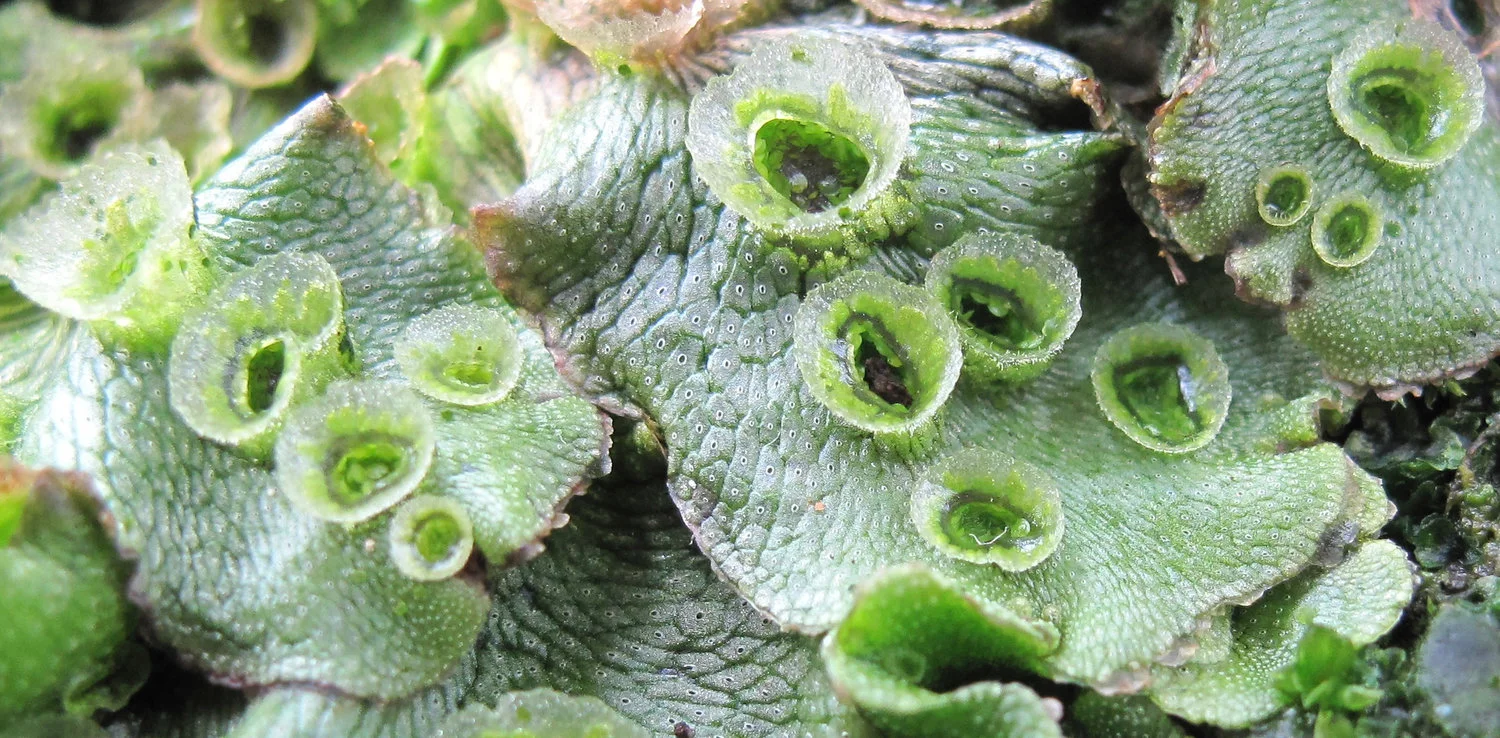Marchantia polymorpha. Credit: Jim Haseloff
OpenPlant Director Dr Jim Haseloff and past and present Cambridge-based plant synthetic biology researchers including Mihails Delman, Bernardo Pollak and Christian Boehm are all co-authors of a major Cell publication on the Marchantia polymorpha genome. The paper involved contributions from researchers across the world who work on this interesting liverwort.
OpenPlant is establishing Marchantia as a test bed for plant synthetic biology, exploiting its extraordinary experimental properties in order to provide a prototype for other OpenPlant initiatives in higher plants. We will produce systematic collections of experimental protocols, shared DNA parts and Marchantia lines to be distributed via the OpenMTA.
Abstract
The evolution of land flora transformed the terrestrial environment. Land plants evolved from an ancestral charophycean alga from which they inherited developmental, biochemical, and cell biological attributes. Additional biochemical and physiological adaptations to land, and a life cycle with an alternation between multicellular haploid and diploid generations that facilitated efficient dispersal of desiccation tolerant spores, evolved in the ancestral land plant. We analyzed the genome of the liverwort Marchantia polymorpha, a member of a basal land plant lineage. Relative to charophycean algae, land plant genomes are characterized by genes encoding novel biochemical pathways, new phytohormone signaling pathways (notably auxin), expanded repertoires of signaling pathways, and increased diversity in some transcription factor families. Compared with other sequenced land plants, M. polymorpha exhibits low genetic redundancy in most regulatory pathways, with this portion of its genome resembling that predicted for the ancestral land plant.
Reference
Bowman, John L., et al. "Insights into Land Plant Evolution Garnered from the Marchantia polymorpha Genome." Cell 171.2 (2017): 287-304.
Fig 1 from Bowman et al., 2017



